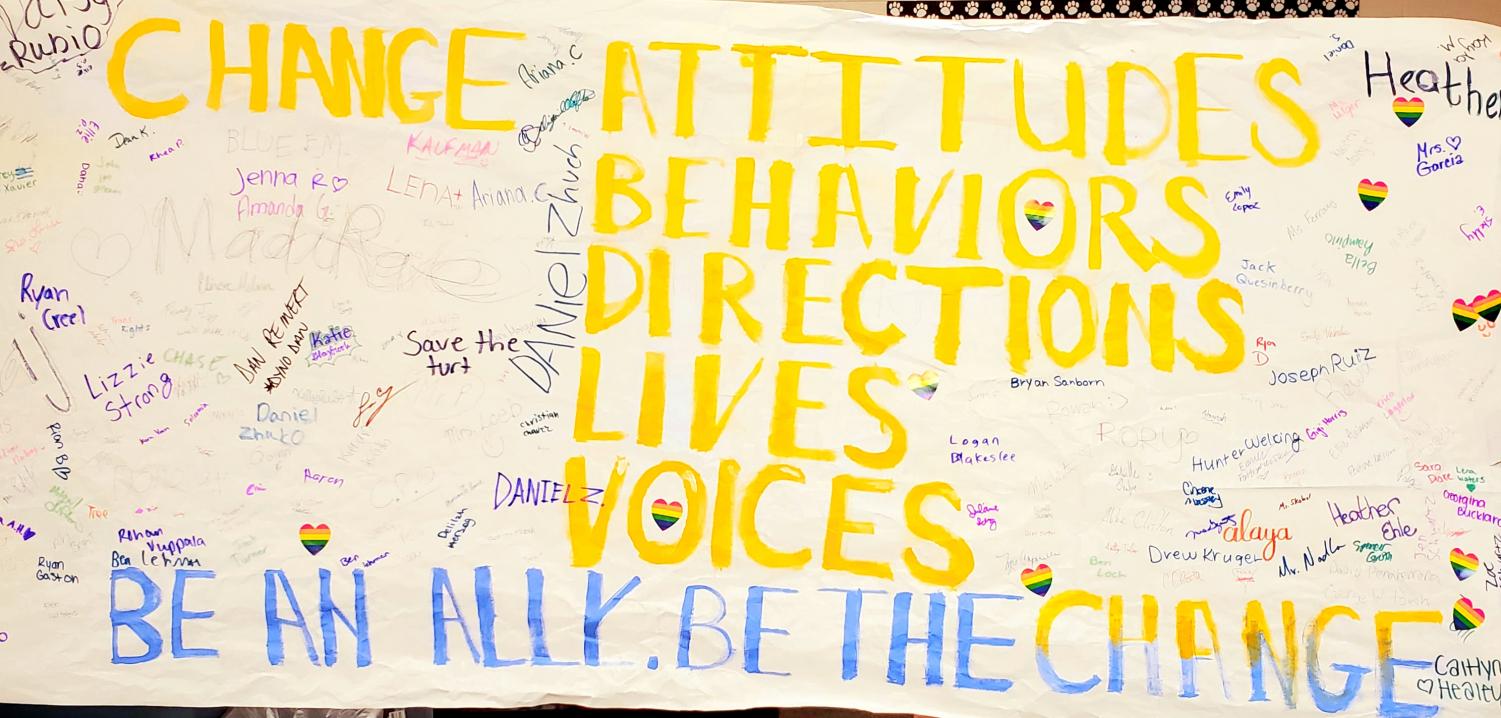We’re all in this together
Spectrum celebrates Ally Week
September 30, 2019
Almost 50% of students report being bullied nationwide according to StopBullying.gov. That means in our school of 1,776 students, about 888 students are bullied. That’s 15 students in every class of 30 kids.
Ally Week is organized by Spectrum to, “thank the straight allies for standing with the gay friends, the trans friends, or [other LGBTQ+ members],” Margaret Koy, Spectrum advisor, said, as well as a way to, “try to get people to pledge to be allies because we need more allies in this world.”
“I think it’s good to recognize all people for who they are, and to care and support them for who they are,” Koy said. “I think it would be nice if more people who weren’t in the community were supportive of the community; I just want everybody to love everybody else.”
Spectrum members say they need an Ally Week because some students are not supportive of the LGBTQ+ community and bully victims, and statistics show 33% LGBTQ+ students report being bullied according to the Youth Risk Behavior Surveillance.
One of the bullied students include Joey Nemec, junior and Spectrum member, who has felt, “excluded and bad,” as a result of the bullying he says, and was forced to come out due to rumors students spread about him.
“There’s a few situations where I’ve been called names or have been talked about behind my back,” Nemec said. “I’ve heard ‘queer, faggot, tranny’ to name a few. I’ve also had people question why I chose to be gay, which is really offensive. Probably the worst situation is when I had a personal belonging of mine vandalized, but I have really supportive friends and family, so it doesn’t really matter what others think of me.”
Bullying of LGBTQ+ students may be because “a lot of people think of the Gay Straight Alliance (GSA) as being a joke,” according to Koy, and those students are, “uncomfortable with who we are and what we do.”
“It’s different, especially the transgender thing; that’s really different and mind blowing to a lot of people,” Koy said. “When you come into contact with something you’re uncomfortable with, that you don’t know, you tend to [not accept it]. When I was in high school, it was a bad thing and nobody came out because they were afraid of what would happen if they did.”
And although LGBTQ+ students are “oppressed or excluded” by students in the school, “a bigger problem is with family,” Nemec says.
“I think it’s more with family because a lot of the time people don’t get accepted by their parents, siblings, grandparents, whatever, and I think that’s what’s harder,” Nemec said. “Bullying is definitely hard, but the biggest problem in the community is that we don’t have any family, which is why we come to this club to see other people in your community who sort of replace as your family.”
Ally Week is the chance to “remind everybody that we’re all human beings and everybody should support everybody else, period,” Koy says, because “we’re all a part of the GSA community,” which is why student allies are important to the LGBTQ+ community.
“If we get just one more ally out of it, then that’s something, that’s a victory,” Koy said. “It also reminds people that we’re all human beings. That’s really what we’re looking for is straight and gay, it doesn’t matter, we’re all human beings. We need to support each other. We’re all in this together.”
